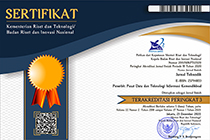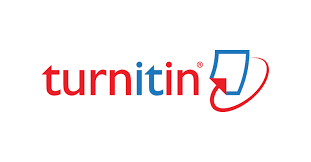Evaluation of the Implementation of the Meaningful Learning Learning Model Based on Educational TV for High School Level
DOI:
https://doi.org/10.32550/teknodik.vi.1083Keywords:
Evaluation, Learning Model, Meaningful Learning, TV EdukasiAbstract
Educational TV is a learning resource that is used especially during the Covid 19 pandemic. To maximize the use of Educational TV in the learning process, it is necessary to apply educational TV content-based learning models. One of the models developed is the Meaningful Learning Learning Model. This learning model is applied in high school level schools. To determine the effectiveness of the application of this learning model, it is necessary to evaluate its application. This research is an evaluation research. The evaluation approach used in this research is goal-oriented evaluation. The data collection method used is a combination of qualitative and quantitative, because the type of data collected is qualitative data and quantitative data. The targets (respondents) of this evaluation were Indonesian language teachers and SMAIT Nurul Fikri students with details of 30 students in class X MIPA 3, 31 students in class X MIPA 4, and 32 students in class X MIPA 2. The evaluation results show that the TV-based Meaningful Learning learning model is easy. applied. There is an increase in the quality of learning processes and products by applying the Meaningful Learning learning model based on Educational TV. The application of the TV Education-based Meaningful Learning learning model makes a significant contribution to solving learning problems. Thus it can be stated that the application of the TV-based Meaningful Learning learning model for learning at the high school level (SMA) is effective.
References
diterapkan pada pembelajaran jenjang SMA. Model ini bisa diterapkan pada jenjang lainnya seperti jenjang SMP dengan mempertimbangan karakteristik sasaran dan kondisi lingkungan setempat.
PUSTAKA ACUAN
Abdul Hamied, F. (2009). MODEL PEMBELAJARAN INOVATIF DI ERA GLOBAL (Suatu Kajian Perbandingan di Negara Maju). 15. Diambil dari http://www.jurnalnasional.ump.ac.id/index.php/khazanah/article/view/617
Ashburn, E. A., & Floden, R. E. (2006). Meaningful Learning Using Technology: What Educators Need to Know And Do. New York: Teachers College Press.
Howland, J. L., Jonassen, D. H., & Marra, R. M. (2014). Meaningful Learning with Technology Pearson New International Edition (4 ed.). London: Pearson New International Edition.
I Ketut Sudarsana, Niluh Ari Kusumawati, Ni Made Muliani, I. P. Y. P. (2020). Covid-19: Perspektif Pendidikan. In K. A. P. D. PF & J. Simarmata (Ed.), Covid-19: Perspektif Pendidikan. Medan: Yayasan Kita Menulis.
Kurniawan, M. R., & Gafur, A. (2014). Peranan Siaran Televisi Edukasi Dalam Mendukung Terciptanya Sumber Dan Motivasi Belajar Bagi Siswa Smp Di Yogyakarta. Jurnal Inovasi Teknologi Pendidikan, 1(1), 98–108. https://doi.org/10.21831/tp.v1i1.2462
Kurniawati, I. (2016). Evaluasi Pemanfaatan TV Edukasi Di 10 Kabupaten/Kota Tahun 2014. Teknodik, 20(1), 13–28. https://doi.org/http://dx.doi.org/10.32550/teknodik.v20i1.178
Moises Esteban-Guitart. (2016). Funds of identity : connecting meaningful learning experiences in and out of School. United States of America: Cambridge University Press.
Riyanto, Y. (2010). Paradigma Baru Pembelajaran Sebagai Referensi Bagi Guru/Pendidik Dalam Implementasi Pembelajaran Yang Efektif dan Berkualitas. Jakarta: Kencana.
Downloads
Published
How to Cite
Issue
Section
Citation Check
License

This work is licensed under a Creative Commons Attribution-NonCommercial-ShareAlike 4.0 International License.
Please download and complete the Form, Copyright Transfer, and Ethics Statement Form. The following is provided at the time of submitting the text (Upload Additional Files):










